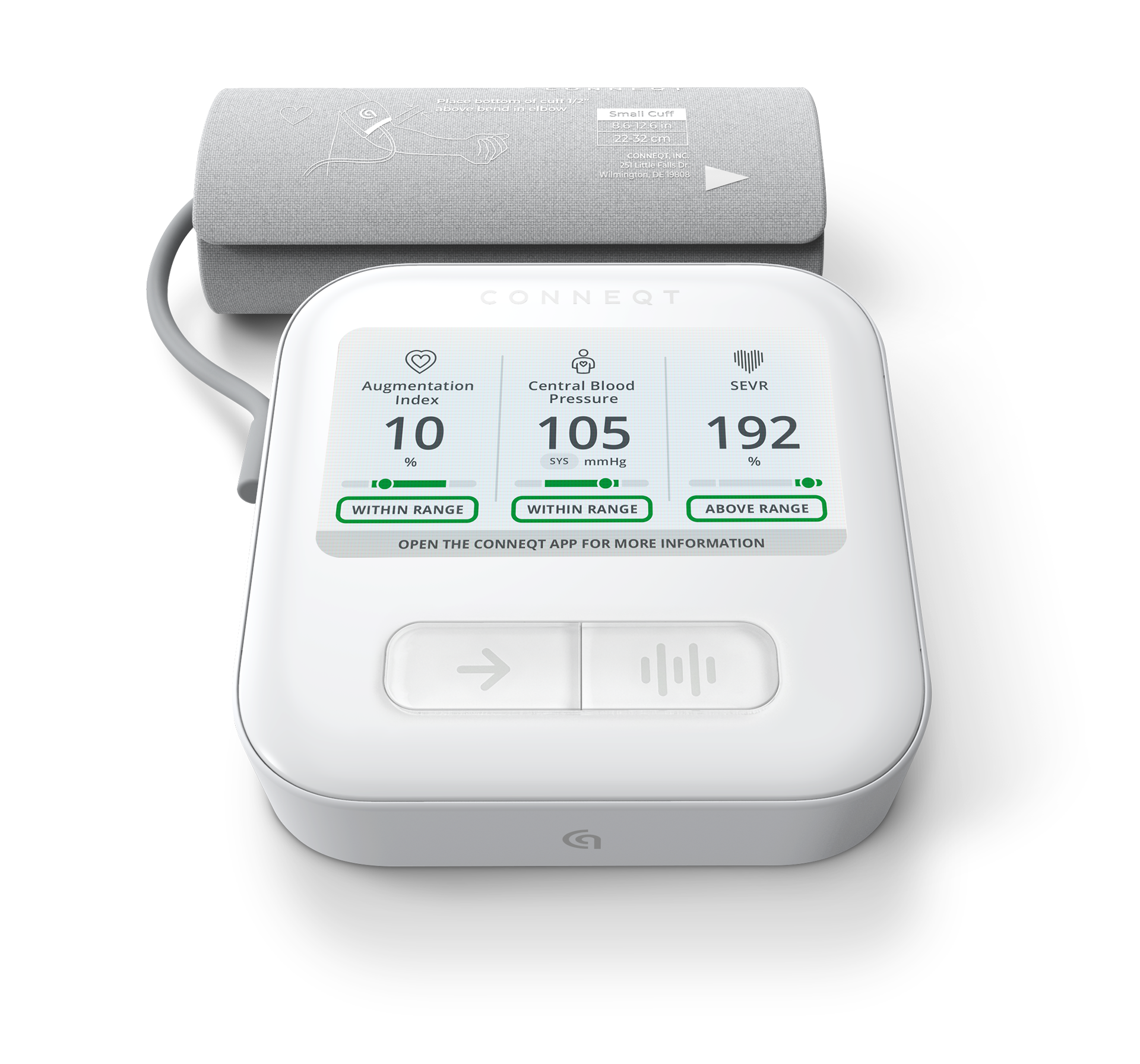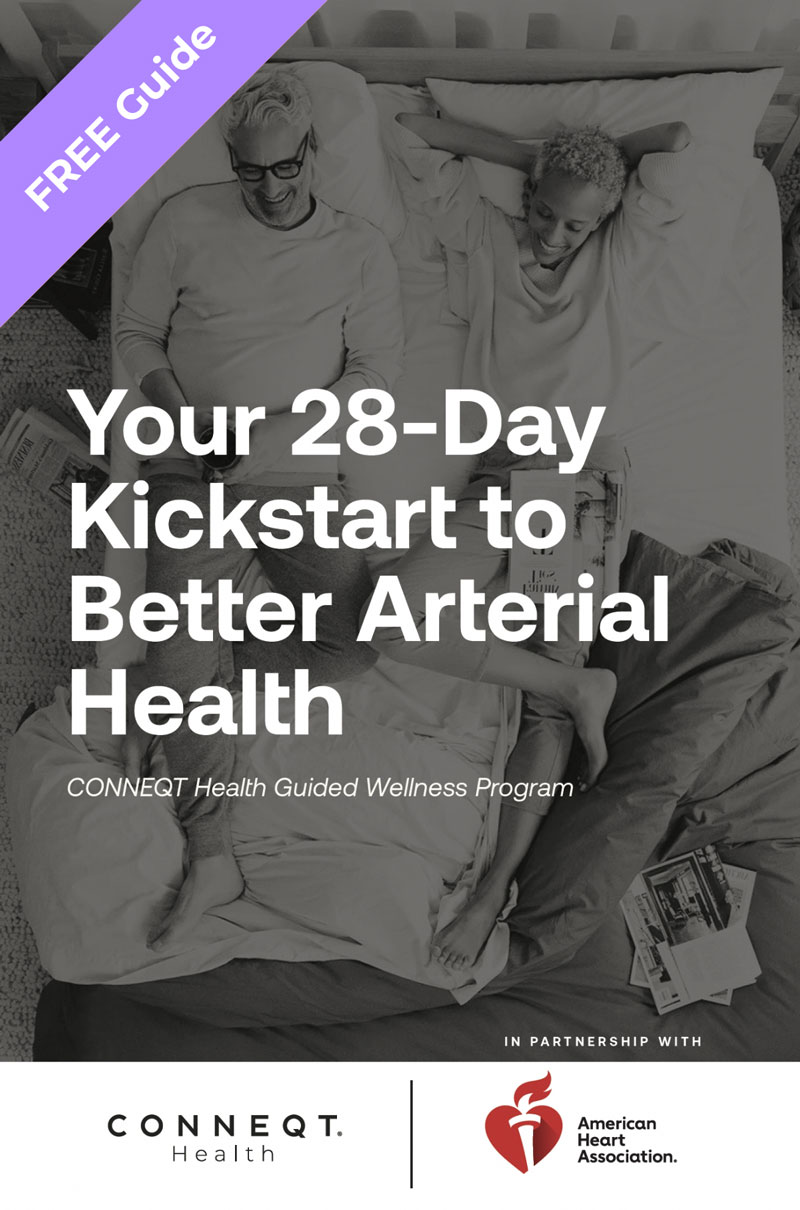Research shows vascular health plays a strong role in cognitive decline. Stiff arteries can reduce blood flow to the brain, increasing the risk of Alzheimer’s and other cognitive impairments.
In recent years, scientists have discovered an important connection between the health of our arteries and the risk of developing Alzheimer’s disease. This link suggests that keeping our arteries healthy is crucial for heart health and protecting our brains as we age.

Medical Grade, Accurate, FDA-Cleared Heart Insights.
Save 20% on checkout with code VITALITY
Arterial stiffness happens when the walls of our arteries lose their flexibility. Normally, healthy arteries expand and contract with each heartbeat, allowing blood to flow smoothly. But as we get older, or if we have conditions like high blood pressure or atherosclerosis (a buildup of plaque in the arteries), our arteries can become stiff. This stiffness can lead to higher blood pressure and reduced blood flow to vital organs, including the brain.
The Hidden Connection: Arterial Health and Alzheimer’s
The brain needs a constant and strong supply of oxygen-rich blood to function well. When arteries become stiff, they can’t supply blood as efficiently, which can reduce blood flow to the brain. This reduced blood flow has been linked to cognitive decline and may be an early sign of Alzheimer’s disease, even before we notice any symptoms.
Alzheimer’s disease is known for the buildup of harmful proteins in the brain called amyloid-beta plaques and tau tangles. These proteins damage brain cells and lead to memory loss and other cognitive issues. Research is now showing that problems with blood flow, due to stiff arteries, might contribute to the buildup of these harmful proteins.
Stiff arteries can lead to a condition called chronic cerebral hypoperfusion, where the brain doesn’t get enough blood over a long period. This lack of blood flow can increase the accumulation of amyloid-beta plaques, worsening Alzheimer’s disease. Moreover, stiff arteries can make the blood-brain barrier more permeable. The blood-brain barrier is a protective shield that keeps harmful substances out of the brain. When this barrier is weakened, more toxins can enter the brain, leading to inflammation and damage.
“If you don’t have healthy vessels, you can’t have a healthy brain. The vasculature — the network of blood vessels in the brain — is vast and intimately intertwined with the neuronal system so if it’s not working properly, the brain suffers.”
Dr. Daniel Nation, Ph.D., Associate Professor at the Institute for Memory Impairment and Neurological Disorders at the University of California Irvine
Promoting Arterial Health for Cognitive Protection
Studies have shown that people with stiffer arteries are more likely to experience cognitive decline and develop Alzheimer’s disease. Advanced imaging techniques have confirmed that individuals with stiffer arteries have reduced blood flow in the brain and higher levels of amyloid-beta plaques.
We can adopt several healthy habits to reduce the risk of arterial stiffness and protect our cognitive health. Eating a balanced diet rich in fruits, vegetables, whole grains, and healthy fats helps keep arteries flexible. Regular exercise, aiming for at least 150 minutes of moderate activity per week, can improve arterial elasticity and boost blood flow to the brain. Managing blood pressure through lifestyle changes and medications is also vital, as high blood pressure can contribute to arterial stiffness. Quitting smoking is another essential step since smoking accelerates arterial damage. Lastly, regular health check-ups can help monitor and manage risk factors early.







